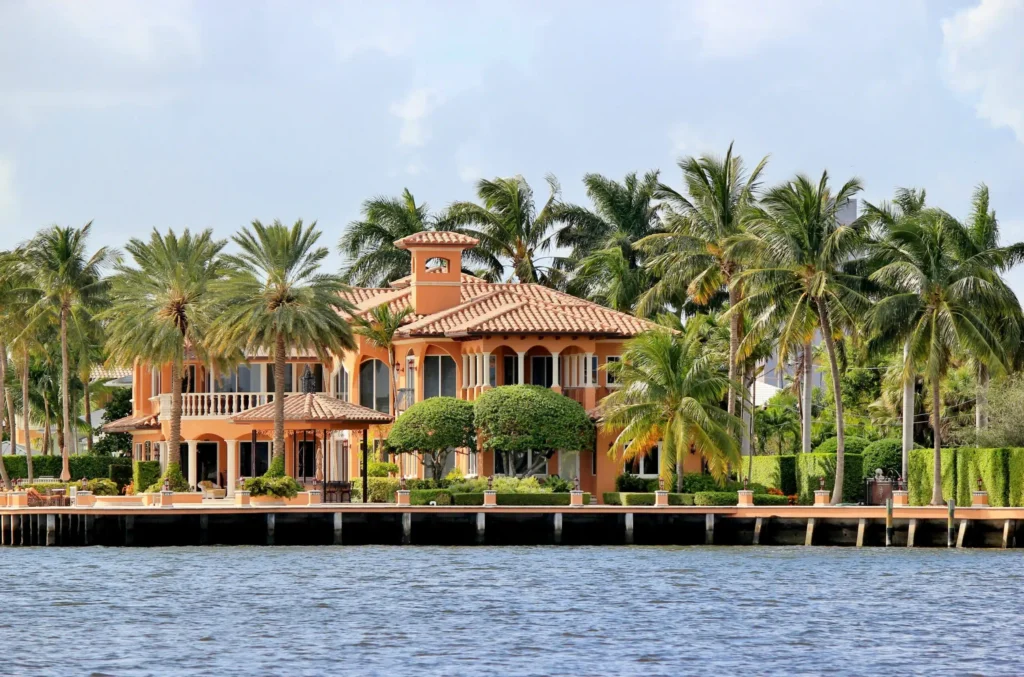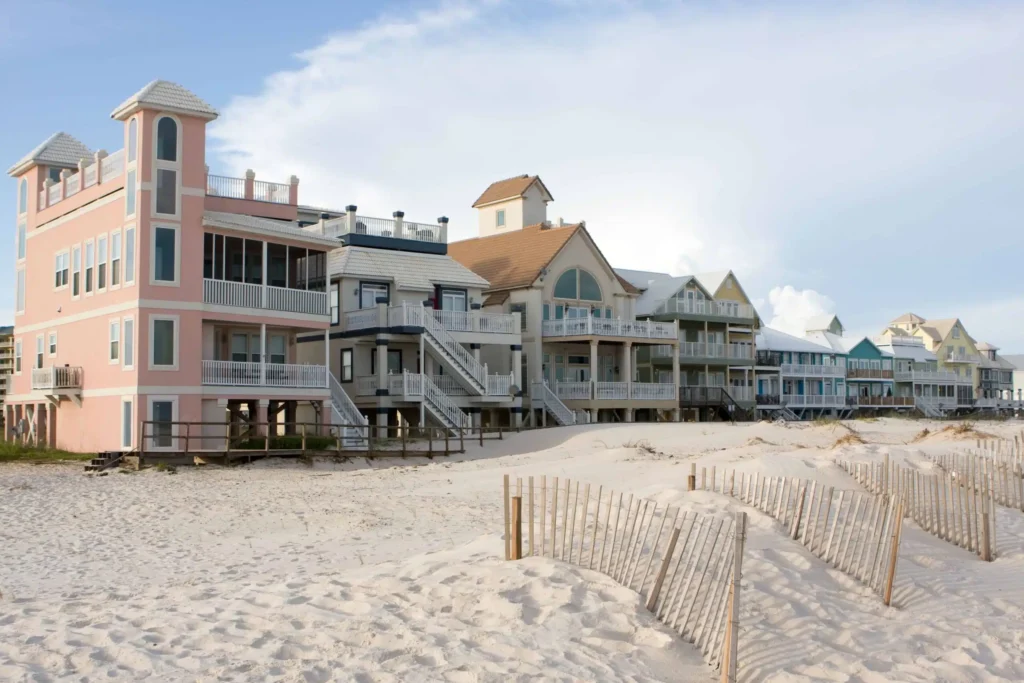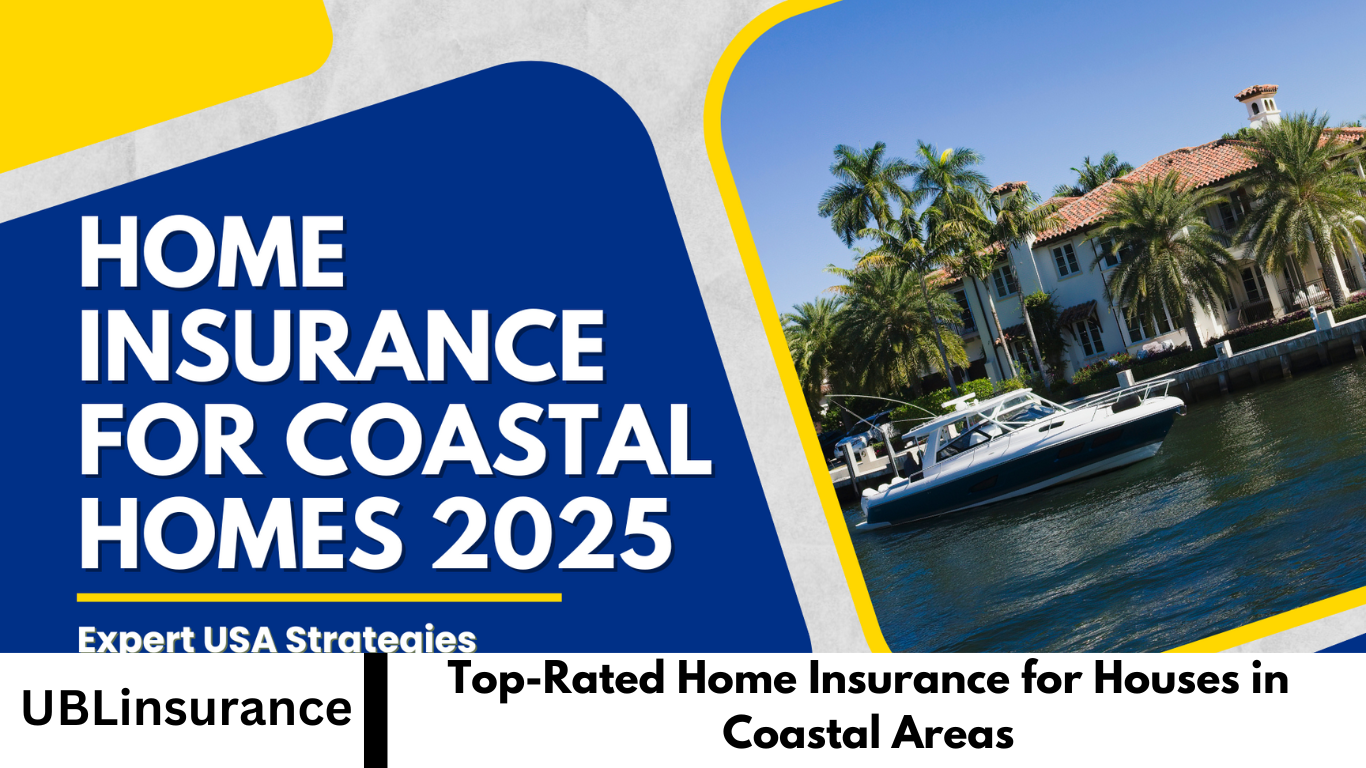Owning a home in a coastal area offers scenic beauty and a peaceful lifestyle, but it also comes with unique risks—like hurricanes, flooding, and wind damage. That’s why having top-rated home insurance explicitly tailored for coastal properties is critical. Standard homeowners insurance may not provide adequate protection in high-risk zones, especially when it comes to storm surges, saltwater damage, or mandatory hurricane deductibles.
Coastal homeowners should look for insurers that offer comprehensive coverage, optional flood insurance, and strong customer service during disaster recovery. Some top-rated providers also offer discounts for storm-proofing your home or installing hurricane shutters and reinforced roofs. When choosing a policy, consider factors such as windstorm exclusions, availability of add-on flood coverage, and whether the insurer has experience in coastal markets.
Why Coastal Properties Need Specialized Home Insurance
Coastal homes face significantly higher exposure to natural hazards, requiring specialized coverage that standard home insurance might not offer. Here’s why:

- Hurricane and Storm Risk: High winds, flying debris, and storm surges are common in coastal zones.
- Flooding: Many coastal properties lie in flood-prone zones, and flood damage is typically not covered by standard home insurance.
- Saltwater Damage: Salt in the air and water accelerates the deterioration of metal fixtures, wiring, and structural elements.
- Higher Rebuilding Costs: Building codes in coastal areas often require storm-resistant materials and designs, making reconstruction more expensive.
This means coastal homeowners need tailored insurance that combines standard homeowners coverage, flood insurance, and sometimes windstorm endorsements.
Top-Rated Home Insurance Providers for Coastal Areas
When choosing insurance for a home near the coast, it’s best to go with companies known for strong coverage in high-risk zones. Here are some top-rated insurers:
- Chubb: Ideal for high-value coastal homes; offers extended replacement cost and water backup coverage.
- USAA: Great for military families; provides comprehensive coverage and excellent flood protection options.
- State Farm: Strong national provider with customizable hurricane and windstorm coverage.
- Allstate: Known for coastal-specific endorsements and reliable claims service.
- Amica Mutual: High customer satisfaction and flexible flood/windstorm options.
- Frontline Insurance: Specialized in coastal properties across the Southeast U.S., especially Florida.
- Neptune Flood (for flood-only): Offers fast, digital flood insurance with flexible limits.
Key Insurance Coverages Every Coastal Home Needs
A standard homeowners policy may not be enough. For coastal homes, you’ll likely need multiple policies or endorsements:
Dwelling Coverage
It covers the cost of rebuilding your home if it’s damaged or destroyed by covered perils. Ensure it accounts for higher coastal construction costs.
Windstorm Insurance
Covers damage from hurricane winds. This may be a separate policy or endorsement, depending on your location.
Flood Insurance

Essential for homes in FEMA-designated flood zones. It can be purchased through the National Flood Insurance Program (NFIP) or private insurers.
Contents Coverage
Protects personal belongings like furniture, appliances, and electronics. Consider replacement cost rather than actual cash value.
Loss of Use (ALE)
Covers living expenses if your home becomes uninhabitable due to a covered event like a hurricane or flood.
Factors That Affect Coastal Home Insurance Costs
Insuring a coastal property is usually more expensive than insuring inland homes. Rates vary based on:
- Location and Elevation: The closer your home is to the water, the higher the risk—and premiums.
- Construction Materials: Homes built with hurricane-resistant materials or roofs can lower costs.
- Claims History: Prior insurance claims, especially for flood or wind damage, can increase your premiums.
- Flood Zone Designation: FEMA flood zones directly impact NFIP and private flood insurance rates.
- Deductibles: Many coastal policies have separate wind/hurricane deductibles (often 2%–5% of dwelling coverage).
Work with a local agent to understand the risk factors and get the most accurate quote.
Flood Insurance: Why It’s a Non-Negotiable in Coastal Areas
Standard homeowners insurance does not cover flood damage, and this is a significant issue for coastal properties. You need separate flood insurance, either from:
- NFIP (National Flood Insurance Program): Backed by FEMA, offers up to $250,000 for structure and $100,000 for contents.
- Private Flood Insurance: Offers higher limits and quicker underwriting. Companies like Neptune, TypTap, and Wright Flood specialize in private flood insurance.
Some benefits of private flood insurance:
- Higher coverage limits.
- Shorter waiting periods.
- Replacement cost for contents (not offered by NFIP).
How to Save Money on Coastal Home Insurance
Even though premiums are higher in coastal areas, there are ways to reduce your insurance costs:

- Wind Mitigation Credits: Install hurricane shutters, impact-resistant windows, and reinforced roofing to qualify for discounts.
- Bundle Policies: Combine your home, auto, and flood insurance with the same carrier for multi-policy discounts.
- Increase Deductibles: Opting for a higher deductible can lower your premium—but be sure you can afford the out-of-pocket costs.
- Elevate Your Home: Homes elevated above base flood elevation (BFE) often receive lower flood insurance premiums.
- Choose a Higher-Rated Insurer: Reputable companies with strong claims records may offer better value even if upfront costs are slightly higher.
Claims Process and Storm Preparedness: What to Expect
In coastal zones, quick and effective claims response is critical. When selecting an insurer, assess:
- 24/7 Claims Availability: Natural disasters don’t strike on a schedule—your insurer should be available at all times.
- Emergency Repairs Coverage: Some policies include reimbursement for tarping, boarding up, and temporary relocation.
- Mobile Claims Tools: Apps and digital tools for filing claims, uploading photos, and tracking progress can be lifesavers after a storm.
- Disaster Response Programs: Top-rated insurers may offer pre-storm preparation checklists or even send adjusters to impacted areas ahead of time.
Frequently Asked Questions
Why is coastal home insurance more expensive?
Coastal homes are more likely to be damaged by wind, flood, and hurricanes, making them more expensive to insure.
Does standard homeowners insurance cover flood damage?
No, flood damage is typically excluded. You’ll need separate flood insurance, often from the National Flood Insurance Program (NFIP) or private insurers.
What is a windstorm deductible?
It’s a special deductible for damage caused by hurricanes or strong winds, often a percentage of your home’s value rather than a flat amount.
How can I lower my coastal home insurance premium?
Installing storm shutters, reinforcing the roof, elevating the home, or bundling with auto insurance can help reduce costs.
What should I look for in a coastal insurance policy?
Look for windstorm, hurricane, and flood protection, along with strong claims service and financial strength ratings.
Do I need flood insurance if I live near the coast but not in a flood zone?
Yes, flooding can happen outside official zones. Many claims come from areas not designated as high-risk flood zones.
Are there insurers that specialize in coastal home insurance?
Yes. Companies like Chubb, Nationwide Private Client, and State Farm often offer tailored coverage for coastal homes.
Can I be denied home insurance due to my coastal location?
Yes, some insurers restrict coverage in high-risk zones. In such cases, surplus line carriers or state-run pools may provide coverage.
Conclusion
Protecting your coastal home requires more than a standard homeowners policy. With increased exposure to storms, floods, and wind damage, choosing a top-rated insurer with specialized coastal coverage is essential. Look for comprehensive policies that include or offer add-ons for windstorm and flood protection, and constantly evaluate the financial strength and reputation of your provider for disaster response. Taking steps to harden your home and reduce risk can also lower premiums and boost coverage eligibility. Whether your property is beachfront or near the coast, the right insurance will provide peace of mind—and fast recovery—when disaster strikes. Don’t wait until the next storm season; secure the best coverage for your coastal home today.




